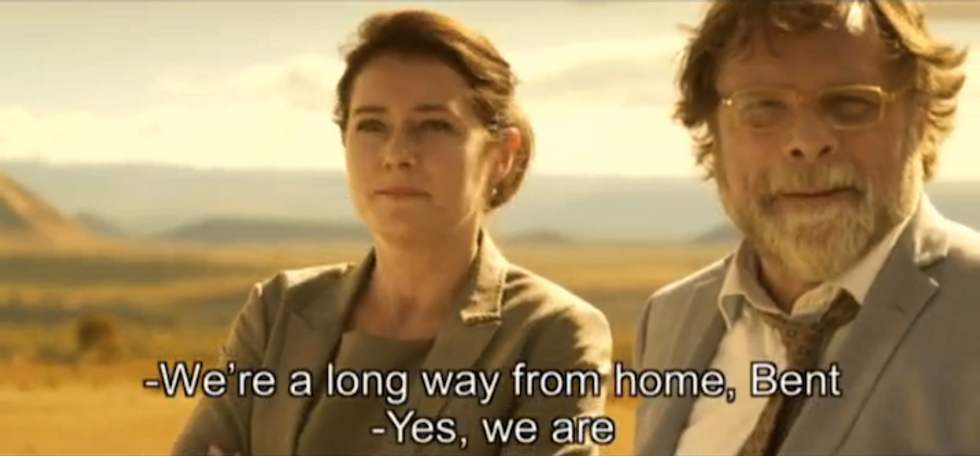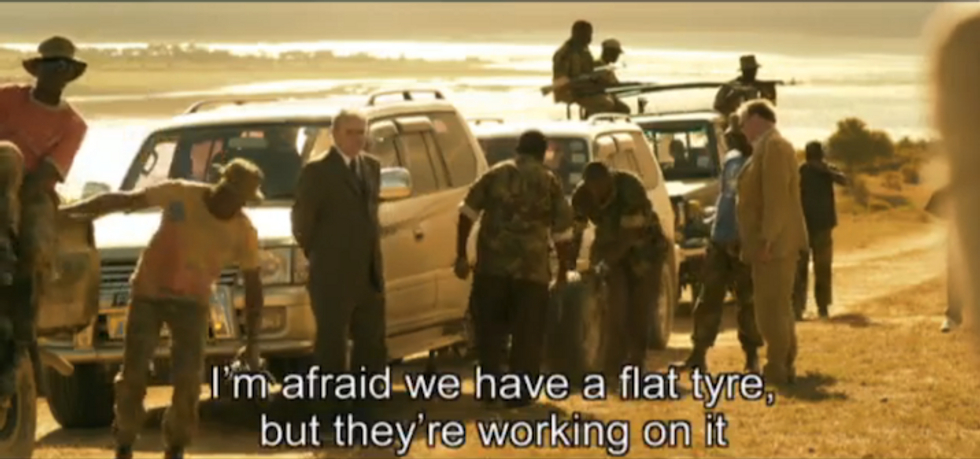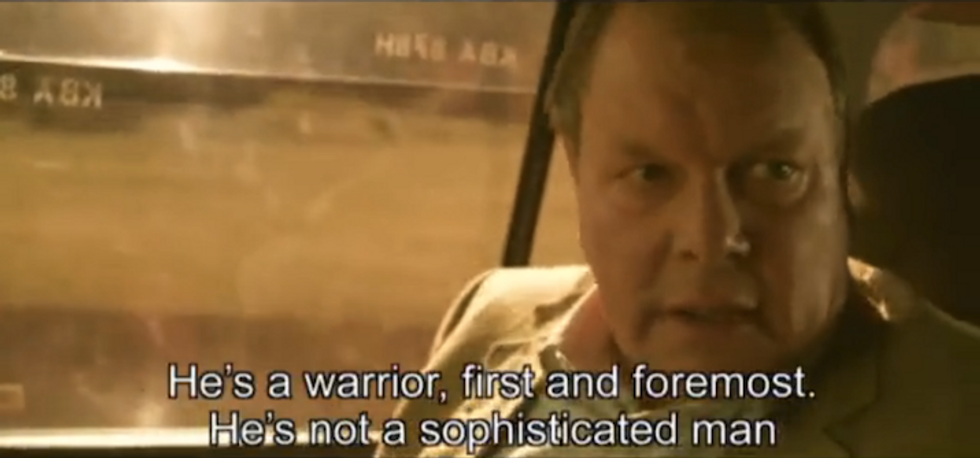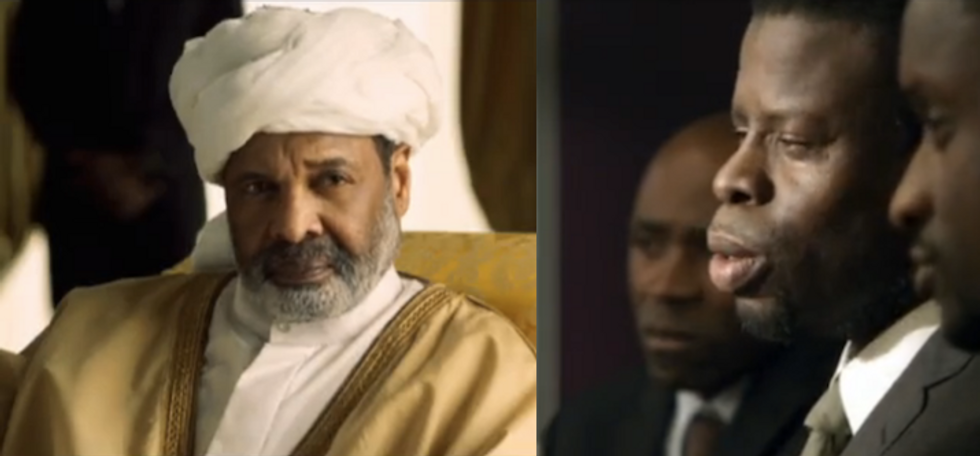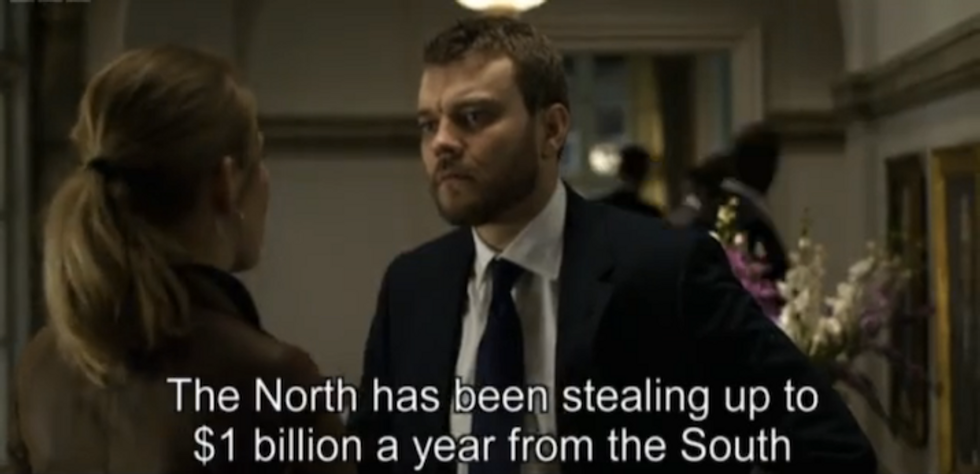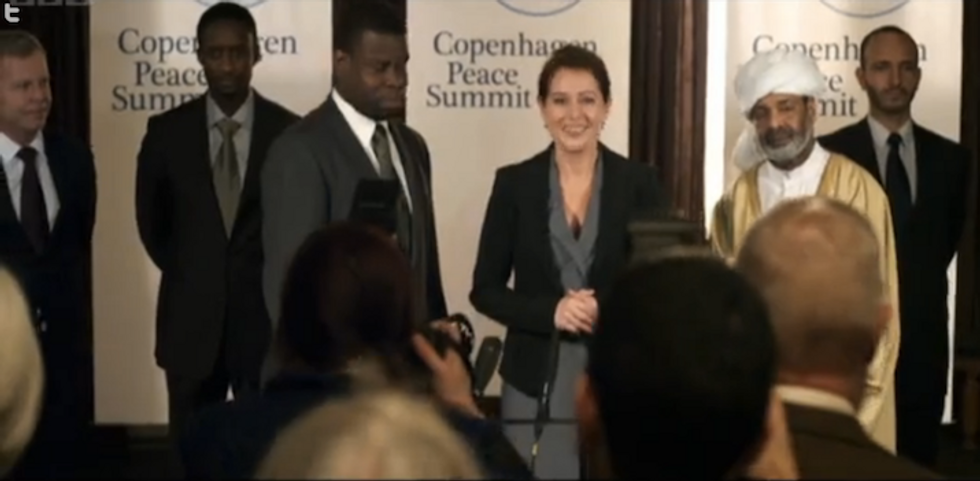Africa On TV: The Borgen Edition
Danish political drama Borgen heads to Africa for an episode, and the results are far nuanced
![]()
In European and American political drama, there comes a time for the "Africa" episode. It's a sign that the leader in question is committed to the "big issues", namely famine, poverty, war, genocide. Thankfully, all of these can be found in one place: the basket-case that is Africa on TV. It took the writers of acclaimed Danish political drama Borgen a season and a half to take us there, but in Season 2, episode 7 Danish Prime Minister, Birgitte Nyborg (Sidse Babett Knudsen) dons her khaki skirt suit andheads to Kharun, a fictional country overrun by civil strife.
Our sympathetic Danish leader wants to spread peace on Earth by negotiating a settlement between the Muslim north and the secessionist Christian South, but this is serious political drama, so there are also some material incentives for Nyborg's intervention. The conflict has interrupted oil extraction by Denmark's biggest tycoon. Add to this her crappy numbers in the polls, and you have the confluence of big money and self-interest that is the stuff of political wet dreams. With democracy, the rule of law and a healthy dose of secularism in her outstretched hands, Nyborg marches to Kharun to end religious strife, and while she's at it, notch up some humanitarian brownie points and restore the country's faith in her leadership. Here are the highlights:
![]()
The minute they hit the continent, the clouds of dust begin to billow. Nyborg has gone to meet the leaders of Kharun, but there isn't a single city, or even village in sight. This is like filling a show about Britain's political strife with images of the Lake District rather than shots of Parliament. HIC SVNT LEONES.
![]()
But there are a few citizens of Kharoun knocking about. Silhouettes in the dusty landscape, they look like mad bad gunslingers. Rather handily though, they double as mechanics, for when the bad roads mess up your 4x4.
![]()
More mad, bad men — this time the country's leaders (not a single African woman in this episode on nation building). Naturally they disagree over religion, land and oil. There's not much to redeem Borgen's portrayal of these two presidents, except that they're so cliched it's a little bit funny.
![]()
From the Islamic north is Omar Al-Jahwar (Abdi Gouhad), a scheming Oxford alum wanted by The Hague for war crimes. His rival, Jakob Lokoya (Femi Elufowoju Jr.) is leader of the Christian south. He appeals to the Danes because he doesn't wear a turban, he speaks English and deploys buzzwords like democracy, progress, even referring to one of the Danish delegates "Uncle". But wait....
![]()
![]()
...there's a catch. After a winning speech about making "South Kharun a shining example for all of Africa" Lokoya, announces with an eerie smile “there are no homosexuals in South Kharun.” This utterance has precisely nothing to do with any of the storylines and its inclusion makes me wonder whether there wasn't some kind of African despot checklist the writers were trying to fulfill. I don't think we need to go into why such cartoonish sketches of African leaders are foolish, but we addressed the problems with understanding Africa as "naturally homophobic" just a week ago.
![]()
Despite less than progressive views on both sides of the conflict, the Danes persuade both leaders to come to Denmark for negotiations. When it turns out that North Kharun has been swindling oil revenues it comes as little surprise. In Africa, C is for Corruption.
![]()
![]()
Despite this (and other) setbacks to the peace process, the Danes decide to use the small matter of North Kharun's swindling as political leverage to close the deal, and the episode ends with faith restored in Nyborg's leadership. It's an accurate portrayal of how Western politicians use humanitarian causes to further their political capital at home, but the underlying message — that only with Danish (read: European) intervention can African leaders resolve their African squabbling –goes unquestioned. Instead, the Danes own democracy, and contrary to what the naughty Muslim patriarch thought, this progressive Western woman has taught both of them a thing or two.
![]()
Nul points: It's an otherwise stellar series, but Borgen wins zero prizes for groundbreaking portrayals of Africa.


